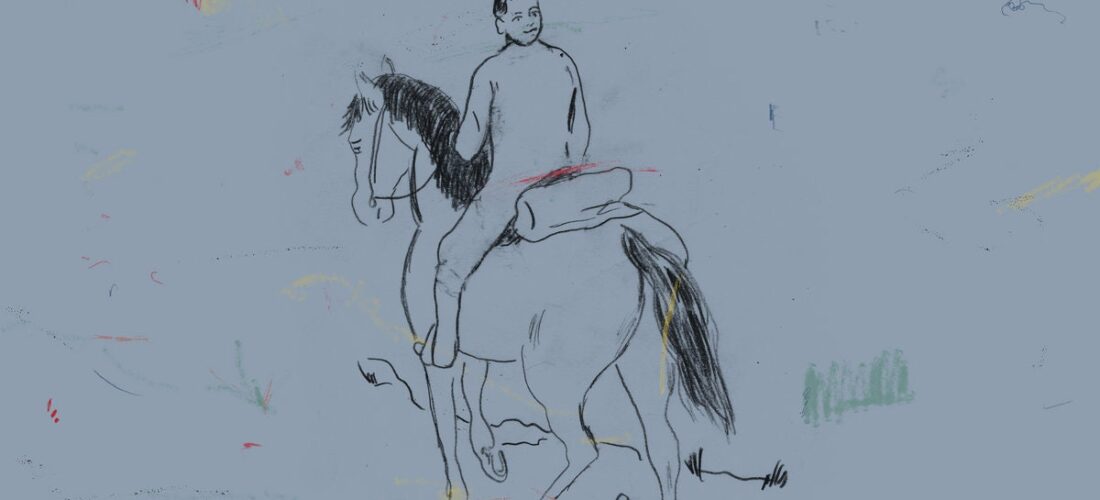Not so long ago, Jake Xerxes Fussell was in a hurry. The son of Southern folklorists, Fussell took his family inheritance—that is, an invaluable intimacy with customs and cultures far beyond the mainstream of his ’90s youth—and immortalized it with his earliest records. Fussell played spirited and relatively faithful versions of rather obscure old songs. Sometimes, he sped through them, though, as if he were some folk-festival stenographer, putting down what he’d heard in his own hand before it was all lost to the future’s sweep.
But near the last decade’s end, on his third album, 2019’s Out of Sight, that seeming impatience began to erode, replaced by the desire to transform that inheritance into something truer to his own life and time. With his rhythmically idiosyncratic guitar and his golden mean of a folk singer’s voice, as inviting as a Sunday picnic, Fussell stitched together bits of those old tunes in ingenious shapes. It was as though Fussell finally realized just how much of his source material had made it online, ostensibly digitized forever; that work done, he could now tell his own story by using that source material in his own way and his own time, as slowly as he’d like.
Fussell has never been as patient—or, for that matter, as graceful or compelling, curious or inclusive—as he is on When I’m Called, his fifth and best album. Produced by kindred spirit James Elkington and played by a cast that includes Blake Mills, Joan Shelley, and Joe Westerlund, When I’m Called foregrounds Fussell’s ability to take songs moldering in university archives or reissue label stacks and locate another meaning within them, to imagine some new way to interpret that inheritance.
Fussell’s field of play is broad here, from a 1994 cassette by Maestro Gaxiola, who turned his life into a sort of anti-industry piece of performance art, to an English nursery rhyme about animals that dates at least to 1744 and may be an allegory for a half-dozen historic events. In conversation with what has come before, Fussell creates a space where our own modern malaises, whether loneliness and anxiety or political instability and social suspicion, feel less like our burdens than those of humanity at large. Fussell finds mostly forgotten songs to sing, less now to preserve them than to connect to a past we still share.
Much of When I’m Called is a survey of indecision, or at least of not knowing what is supposed to come next. Most obvious is “Leaving Here, Don’t Know Where I’m Going,” a century-old Georgia lament about needing to part from home to get some work. (Another of Fussell’s folklore mentors, the late Art Rosenbaum, captured it for Folkways 40 years ago.) Framed by gentle acoustic guitar that trickles like a country creek and horns that sound like soul-baring sighs, Fussell’s tragic rendition is an existential wrestling match in slow motion. Why does pursuing what we need so often cost us what we love, like “Alabama water that tastes like cherry wine”?
